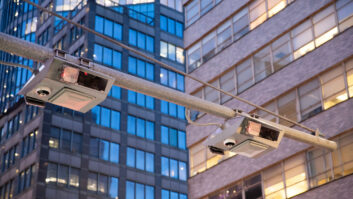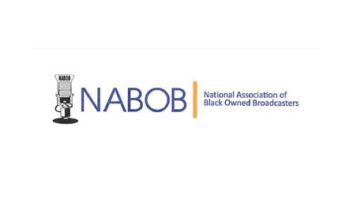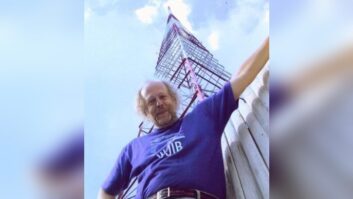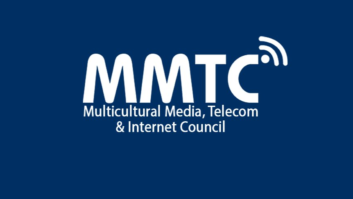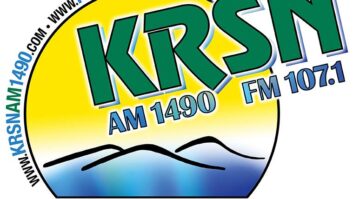With only 36 watts ERP, New Orleans’ LPFM station WHIV 102.3 is not a heavy hitter in transmission power. But this community station seeks to punch above its weight in the Mid-City area.
Tune in on air or online and you’ll hear volunteer-produced programming focused on human rights, social justice and disease prevention issues, among others.
“Our tagline is ‘WHIV is community radio, dedicated to human rights and social justice,’” said Dr. MarkAlain Dery, an infectious disease specialist and the executive director and co-founder of the station.
In fact, Dery chose WHIV’s call sign as a direct reference to human immunodeficiency virus, which attacks the body’s immune system; if not treated, it can lead to acquired immunodeficiency syndrome, i.e. AIDS. The station call letters are a reminder of the disease and community efforts to destigmatize it.
Promoting public health
“Very little about Dr. MarkAlain Dery could be described as ordinary.”
That was the opening of an article in Time magazine in 2016.
“The HIV specialist at Tulane University in New Orleans favors three-piece suits and French-cuff shirts to white coats, khakis and Crocs. Under his shirtsleeves, his arms are a canvas for tattoos — a fleur-de-lis, an old-school radio microphone, a sexy portrait of his wife. Standard modes of transportation aren’t for him, either. Stashed in the corner of his office is the four-wheeler he uses to get around town: his skateboard,” the article continued.
“Dery’s penchant for iconoclasm goes beyond appearances. As director of the Tulane T-Cell Clinic — an HIV patient center deliberately named without those three stigma-filled letters — Dery is testing an approach to disease management that’s mostly unheard of at HIV clinics in the U.S.”
Dery’s interest in promoting public health is personal and longstanding. He is affiliated with multiple hospitals in The Big Easy. He has also served on many humanitarian medical missions over the years in response to events like Hurricane Katrina, the 2010 Haiti earthquake, the 2014–15 Ebola virus epidemic in Sierra Leone and the war in Ukraine.
It was during a ride in a Cambodian rickshaw that Dr. Dery heard a podcast about low-power FM stations. After learning that frequencies would be available in New Orleans, he and his wife Liana Elliott applied for and received the WHIV license.
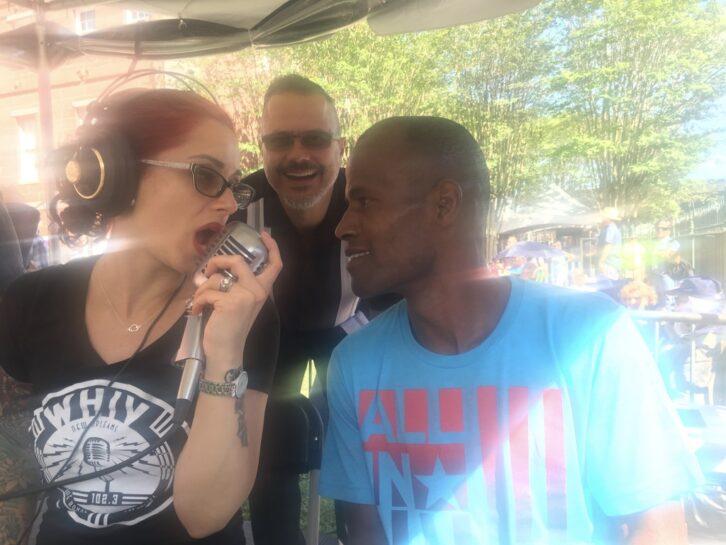
The station is a program of the New Orleans Society for Infectious Disease Awareness, or NOSIDA, which Dery founded in 2009. According to the WHIV website, “NOSIDA’s focus is to raise awareness about HIV and other infectious diseases through music. Such illnesses are completely preventable, yet disproportionately affect disadvantaged and marginalized populations.”
Diverse content
It took a year for WHIV to go from license-winner to on-air broadcaster.
“Our studio in is New Orleans, mid-city area,” Dery said. “The transmitter and antenna are about a mile away.” Since then, the station has built up a solid roster of volunteer-produced programs to engage its listeners, with a heavy emphasis on social justice-centric spoken word content and music.
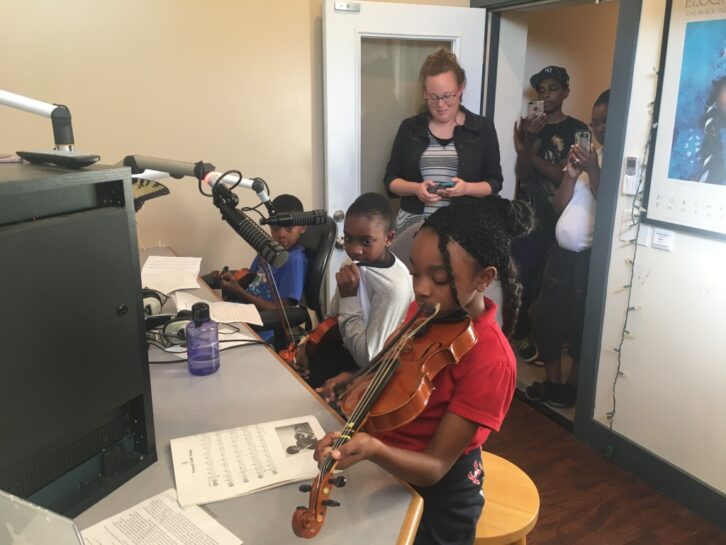
“We ask our DJs — a lot of them are local New Orleans musicians — to play music that focuses on human rights and social justice,” said Dery. That said, WHIV management doesn’t act as overseers of its shows: “I don’t babysit all the conversations and music. We just ask that they do it.”
In line with its progressive mission, WHIV has a diverse lineup of producers. “That’s important for us,” Dery said. “We have a 50% men/women gender split, along with many producers from non-white and LGBT communities.” Dery also produces his own programming/podcasts for WHIV, in an effort to counter anti-vaxxer rhetoric in the media.
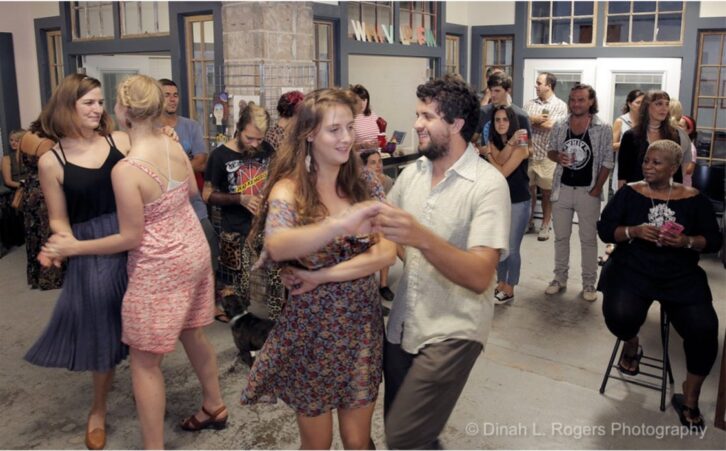
Not everybody loves WHIV’s social justice content.
“There’s a big famous racist from Louisiana named David Duke who runs a lot of white supremacy groups, and he tweets against us every once in a while,” said Dery. “We consider his attacks to be a badge of honor.”
Keeping the lights on
As a non-profit LPFM with just one paid staff member, WHIV can’t support itself on advertising revenues the way full-power commercial FM stations can. So Dery and his associates count on the New Orleans community for support through fundraising events, station memberships and donations.
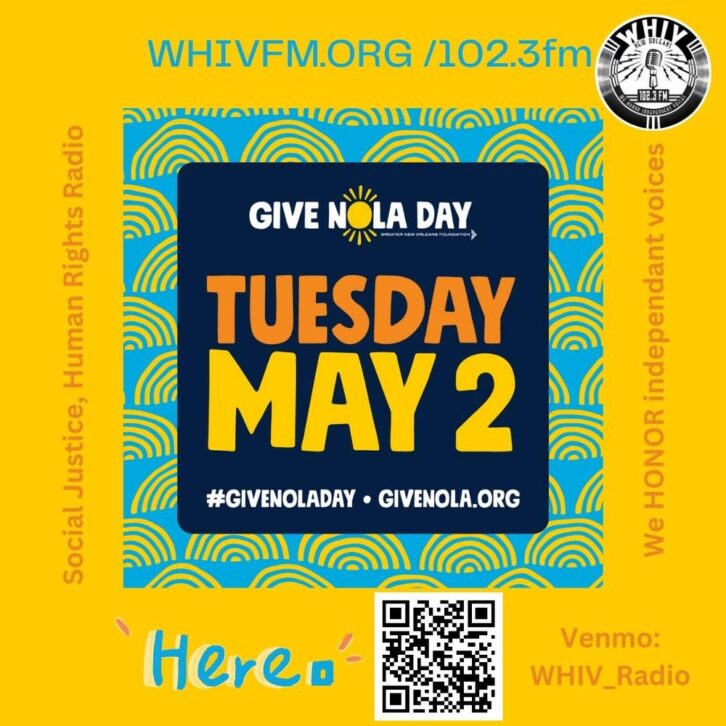
“When we started out, I was paying the bills,” Dery said. “But that couldn’t go on indefinitely, which is when we started fundraising. Even with the hit WHIV took during COVID — which cut into our volunteer base and revenues — we have managed to keep going. Still, we are living month to month, but we’ve become used to that by now.”
As long as the money and volunteer content keeps coming in, WHIV will stay on air. “It’s important that there’s another voice out there on radio,” said Dery. “Mainstream media focuses on maintaining the status quo. The people who are at WHIV are trying to fight that status quo.”








